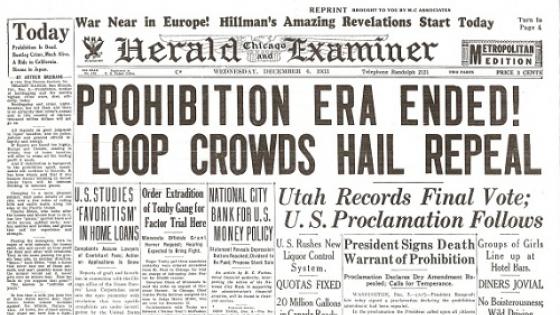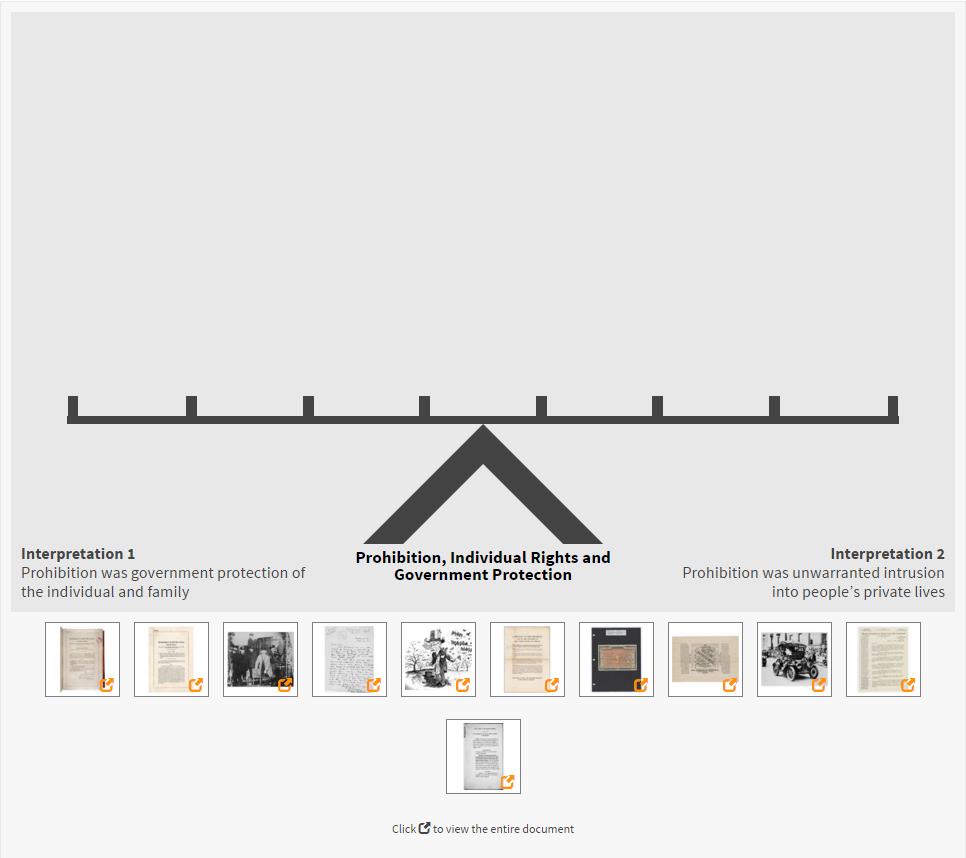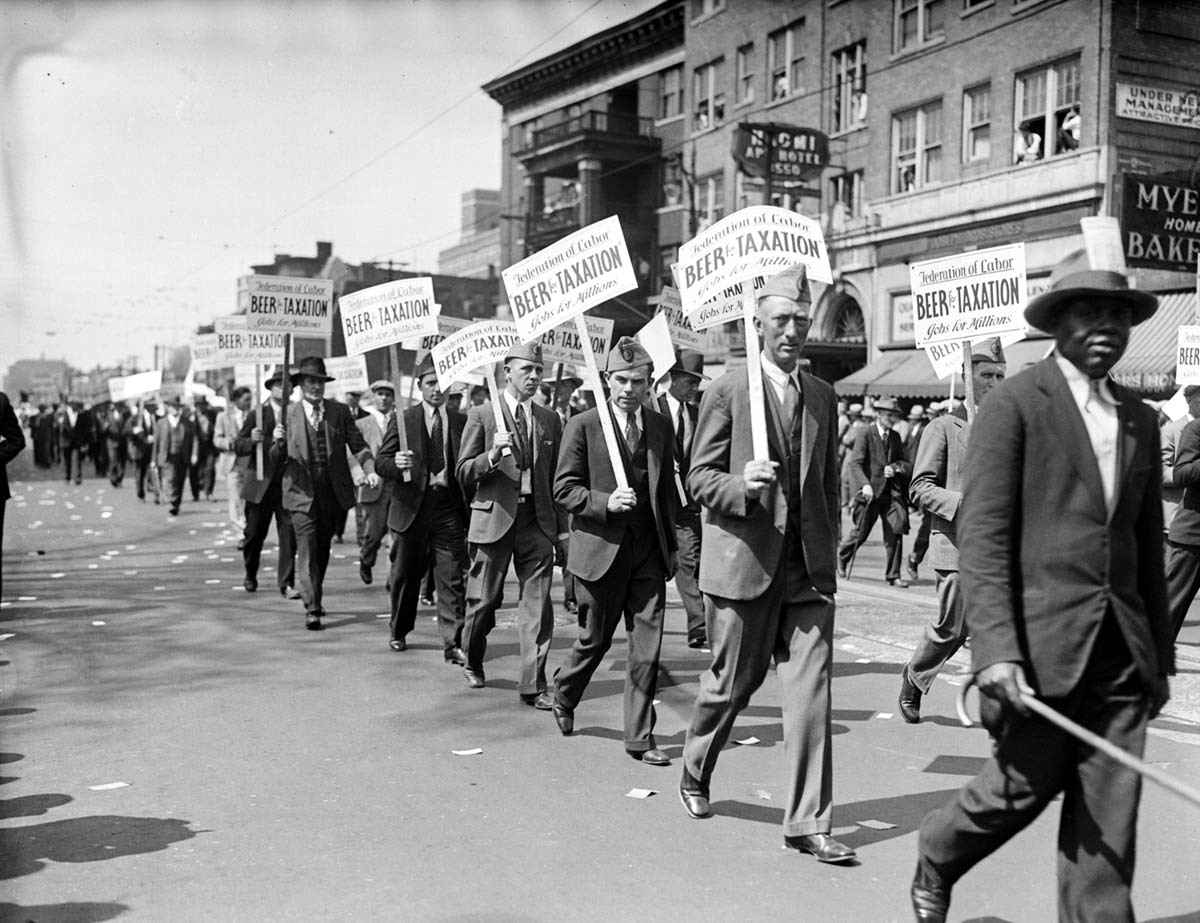Prohibition led to organized crime by creating a lucrative market for illegal alcohol, which allowed gangsters to establish bootlegging and speakeasies as profitable businesses.
Impact Of Prohibition On Organized Crime
The implementation of Prohibition in the United States in 1920 had a significant impact on organized crime. As the production, sale, and distribution of alcohol became illegal, it created a lucrative opportunity for criminal organizations to fill the demand for alcohol. This led to the emergence of organized crime groups that profited immensely from bootlegging and running speakeasies.
Emergence Of Organized Crime
Prohibition provided a fertile ground for the emergence of organized crime in the United States. Criminal syndicates, led by prominent figures such as Al Capone, Johnny Torrio, and Lucky Luciano, seized the opportunity to monopolize the illicit alcohol trade. These organizations operated with efficiency and coordination, establishing networks of production, transportation, and distribution that spanned the entire country.
Rise Of Bootlegging And Speakeasies
One of the primary sources of income for organized crime during Prohibition was bootlegging. Bootleggers illicitly produced and smuggled alcohol into the country to meet the high demand. They established secret distilleries, known as “bathtub gin,” and used clever techniques to transport alcohol, such as hiding it in false compartments in cars or smuggling it by sea.
To cater to the public’s desire for alcohol, numerous speakeasies emerged as hidden establishments where people could gather to drink illicitly. These underground bars and clubs operated under the radar, often hidden behind unmarked doors or disguised in plain sight. Speakeasies became a hub of social activity, drawing in patrons who were willing to pay a premium for a taste of forbidden liquor.
Corruption Of Law Enforcement
Prohibition also resulted in the corruption of law enforcement agencies and officials. The vast profits made by organized crime groups allowed them to bribe police officers and federal agents to turn a blind eye to their illegal activities. Many law enforcement officers became complicit in the illicit alcohol trade, accepting regular payoffs to protect bootleggers and speakeasies from prosecution.
This widespread corruption hindered the enforcement of Prohibition laws, enabling organized crime to flourish. It also eroded public trust in law enforcement agencies, creating a sense of disillusionment and frustration among the general population.
In conclusion, Prohibition had a profound impact on organized crime in the United States. It led to the emergence of criminal syndicates that profited immensely from bootlegging and running speakeasies. The rise of organized crime also resulted in the corruption of law enforcement agencies, further facilitating the illicit alcohol trade. Despite the noble intentions behind Prohibition, its unintended consequence of fueling organized crime continues to serve as a cautionary tale in the history of the United States.

Credit: cepr.org
Unintended Consequences Of Prohibition
Prohibition, the nationwide ban on the production, sale, and distribution of alcoholic beverages in the United States from 1920 to 1933, had far-reaching unintended consequences. While the goal of Prohibition was to reduce crime and social problems associated with alcohol consumption, it ultimately led to the opposite effect. The prohibition of alcohol gave rise to a surge in criminal activity, an overwhelmed court system, and a decline in tax revenue. Let’s explore these unintended consequences in more detail:
Increase In Criminal Activity
The implementation of Prohibition inadvertently fueled the growth of organized crime. With the demand for alcohol remaining high despite its illegal status, criminal organizations saw a lucrative opportunity to profit from the illicit liquor trade. Gangsters like Al Capone, Bonnie and Clyde, and Lucky Luciano made millions of dollars every year from bootlegging and running thousands of speakeasies. Police officers and federal agents, who were supposed to enforce Prohibition, often turned a blind eye to these criminal activities in exchange for bribes. This contributed to the rise of powerful criminal syndicates that perpetuated violence and corruption.
Overcrowded Court System
The surge in criminal activity as a result of Prohibition overwhelmed the court system. Courtrooms and jails became overcrowded as the legal system struggled to keep up with the influx of prohibition-related cases. Many defendants had to wait over a year to be brought to trial, causing a backlog of pending cases. This backlog not only strained the resources of the legal system but also delayed justice for both victims and defendants. The overwhelmed court system further compounded the unintended consequences of Prohibition.
Decline In Tax Revenue
The production and sale of alcohol were heavily taxed before Prohibition, providing a significant source of revenue for the government. However, with the ban on legal alcohol, this source of tax revenue vanished. Instead, the illegal production and distribution of alcohol shifted into the hands of criminal organizations that evaded taxation altogether. The decline in tax revenue had severe economic consequences, particularly during the Great Depression. The government’s inability to collect taxes from the alcohol industry further strained an already struggling economy.
In conclusion, Prohibition, despite its good intentions, had unintended consequences that greatly contributed to the rise of organized crime. The increase in criminal activity, overwhelmed court system, and decline in tax revenue were all significant impacts of this policy. Instead of eliminating alcohol-related problems, Prohibition inadvertently fueled the growth of powerful criminal syndicates, overwhelmed the legal system, and hurt the economy. It is a prime example of how well-intentioned policies can have unforeseen and adverse effects.
Shifts In Organized Crime Activities
Prohibition created lucrative opportunities for organized crime as bootlegging and speakeasies became their main sources of income. Gangsters like Al Capone and Lucky Luciano made millions from illegal alcohol trade, while corruption allowed them to operate without consequences.
Diversification Into Secondary Businesses
During the era of Prohibition, organized crime underwent significant shifts in their activities. One major change was the diversification into secondary businesses. As the demand for alcohol soared, criminal gangs saw an opportunity to expand their operations beyond the illegal liquor trade. They began branching out into industries such as drugs, gambling, and prostitution. This diversification allowed them to continue making substantial profits even after the repeal of Prohibition. Criminal syndicates like the infamous Chicago Outfit, led by Al Capone, became increasingly involved in these illicit activities, solidifying their power and influence in the underworld.Shift Away From Alcohol
Another significant shift in organized crime activities during Prohibition was the move away from alcohol as their primary focus. While bootlegging and speakeasies were lucrative ventures, they also attracted a great deal of attention from law enforcement. As a result, many gangs started to shift their operations towards other illicit enterprises that were less heavily regulated and carried lower risks. The prohibition era saw the rise of drug trafficking networks, with gangsters smuggling narcotics such as cocaine and heroin. Additionally, criminal organizations got involved in illegal gambling operations, creating an underground empire of casinos and bookmaking operations. The shift away from alcohol allowed organized crime to adapt and thrive in the face of changing circumstances.Proliferation Of Gangs
Prohibition created a perfect storm for the proliferation of gangs and criminal organizations. The ban on alcohol gave rise to a profitable black market, and criminal entrepreneurs seized the opportunity to fulfill the public’s demand for liquor. This led to the formation of numerous criminal gangs across the United States, each vying for control of the bootlegging and speakeasy trade. Power struggles and territorial disputes were common, resulting in frequent violence and bloodshed. Notorious gangsters like Al Capone, Lucky Luciano, and John Dillinger became household names, symbolizing the lawlessness and chaos that permeated the Prohibition era. The proliferation of gangs during this time laid the foundation for organized crime networks that would continue to thrive long after the repeal of Prohibition.
Credit: www.docsteach.org

Credit: www.pbs.org
Frequently Asked Questions Of How Did Prohibition Lead To Organized Crime
How Did Prohibition Impact Organized Crime?
Prohibition led to the rise of organized crime. Gangsters made millions from bootlegging and running speakeasies, while corrupt officials turned a blind eye. The illegal liquor trade caused a surge in crime and corruption, overwhelming the legal system.
How Did Prohibition Lead To More Crime And Corruption?
Prohibition led to more crime and corruption as it created a thriving illegal liquor trade. Gangsters made millions from bootlegging and running speakeasies, while corrupt police and federal agents turned a blind eye in exchange for bribes. Courtrooms and jails were overwhelmed, and the legal system struggled to keep up.
What Kind Of Scandals Did Prohibition Lead To?
Prohibition led to a rise in organized crime, with gangsters making millions from bootlegging and running speakeasies. Police turned a blind eye, and smuggling and tax revenue declined. The illegal liquor trade grew, and courtrooms and jails became overloaded. Prohibition unintentionally created a range of scandals and corruption.
How Did Prohibition Reduce Crime?
Prohibition increased organized crime by giving gangsters the opportunity to make millions from bootlegging and speakeasies. Police and federal agents turned a blind eye to them in exchange for bribes. Although it reduced alcohol-related violence, it led to an increase in organized crime.
Conclusion
To summarize, Prohibition played a significant role in the rise of organized crime. The illegal alcohol trade presented gangsters with a lucrative business, allowing them to make substantial profits through bootlegging and running speakeasies. The corruption within law enforcement further enabled these criminal operations to thrive.
Although Prohibition was intended to curb alcohol-related issues, its unintended consequences resulted in the flourishing of organized crime. This dark period in American history highlights the intricate relationship between legislation, social behaviors, and the emergence of criminal enterprises.

